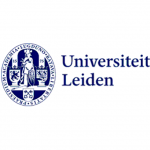
ΑΙhub.org
Hollywood strike: Is AI really a threat to actors?

By Tim Senden
Better pay and new agreements with streaming platforms: the actors’ strike that brought Hollywood to a standstill a few days ago is mainly about money. But there is something else that film actors are worried about: the increasing use of Artificial Intelligence. Is this fear justified?
It’s understandable at any rate, says Peter van der Putten, an assistant professor on the SAILS (Social Artificial Intelligence and Life Sciences) interdisciplinary research programme. “Artificial Intelligence (AI) frightens us. We’re scared of losing control or becoming redundant. But it fascinates us too. Otherwise it would have vanished a long time ago. AI is about questions like: What is intelligence? Where does intelligence come from? How can we learn? But broader ones too: What makes us human?”
Replaced by AI
The Hollywood actors’ protest is partly about the question of whether they will be replaced by AI. Big streaming platforms are said to be planning to pay actors, extras in particular, once for their image or voice. With the aid of AI, a digital scan could be used in perpetuity for various TV and film productions.
According to Van der Putten the problem is not so much about the use of AI but rather about who has the rights to use actors’ images. “AI has become an indispensable part of the film world. They’ve been using it to create extras in big productions for years already. Take The Lord of the Rings or Game of Thrones, with their enormous armies of orcs or the undead. They really aren’t tens of thousands of actors in costume. They are computer graphics that have been made realistic with AI.” AI is also used to generate the scripts for voice actors in animation films or games.
Scripts, casting and production
The production process for films and series would not be possible without AI and has been so for a long time. Scripts are written or improved with AI, for example, and the technology can be used in castings and to increase the efficiency of the filming itself. “The puzzle of film locations: When are we going to film which scene? What do we need for that? Which actors will need to be available and when? AI helps optimise that whole process.”
Van der Putten doesn’t think AI will be taking over completely from actors anytime soon, and definitely not the main and supporting roles. “The question is whether that’s something you should want at all. The film industry benefits when the audience feels a connection to the main character and that’s much easier with a real person. And some scenes can’t be made with AI. An actor who has to act unscripted for two minutes; you really have to put your heart and soul into that. As an actor you have come up with a story behind it or you might draw on your own life experience, and that’s something AI can’t do.”
But AI will have a growing influence on the film industry, and the actors’ strike will do little to change that. “Obviously actors have to be paid when they loan their voice or image to a production. Without wanting to sound cold and contemplating: work changes and there’s little we can do about it. When photography made its entrance in the 19th century, painters were scared it would mean the end of the art. But they adapted. Movements like impressionism and expressionism gradually emerged from boring, realistic academy work.”
AI as a welcome addition
“I hope the same can be true for AI, that the technology can be seen as a welcome addition, also within the art world. Take the h/AI play, where the actors got their lines from ChatGPT. It resulted in absurd situations now and then, and these made the play interesting. AI has loads of glitches and that’s what makes it so fascinating: it really does get us thinking about who we are.”









